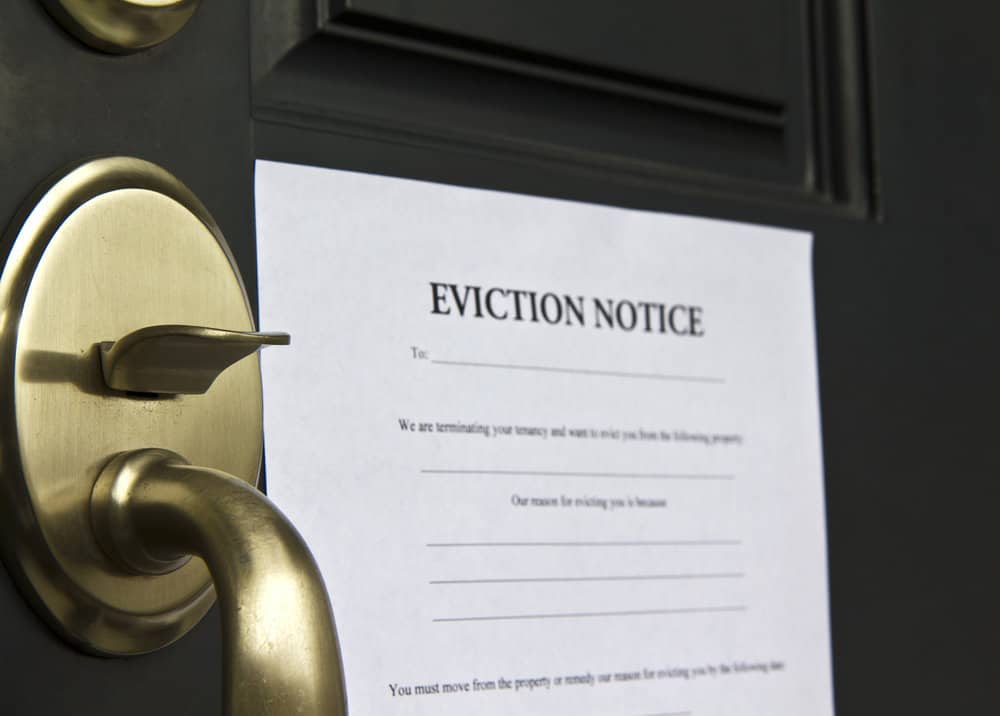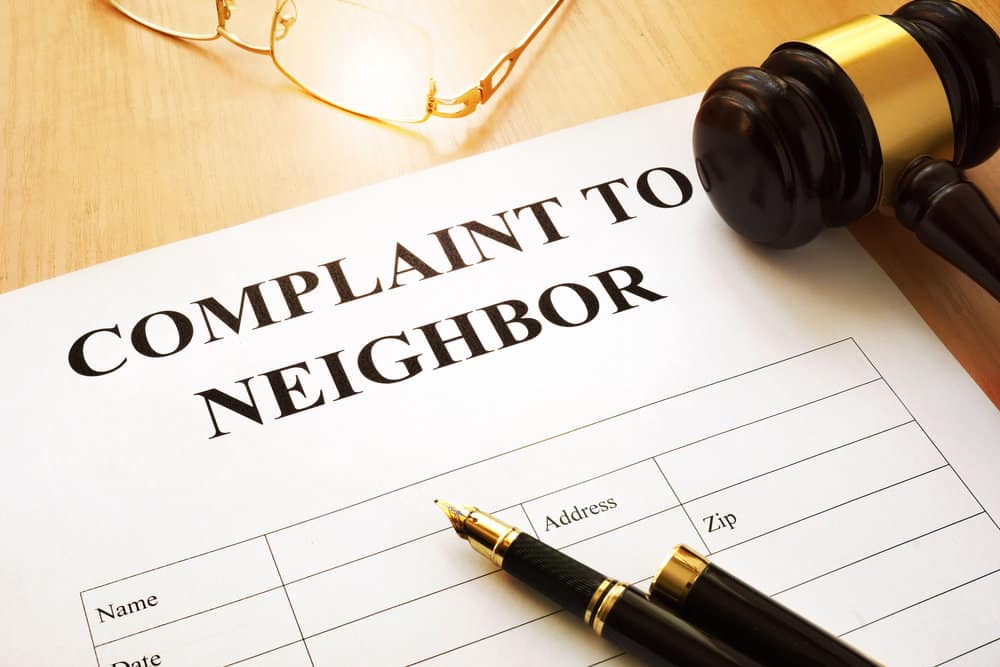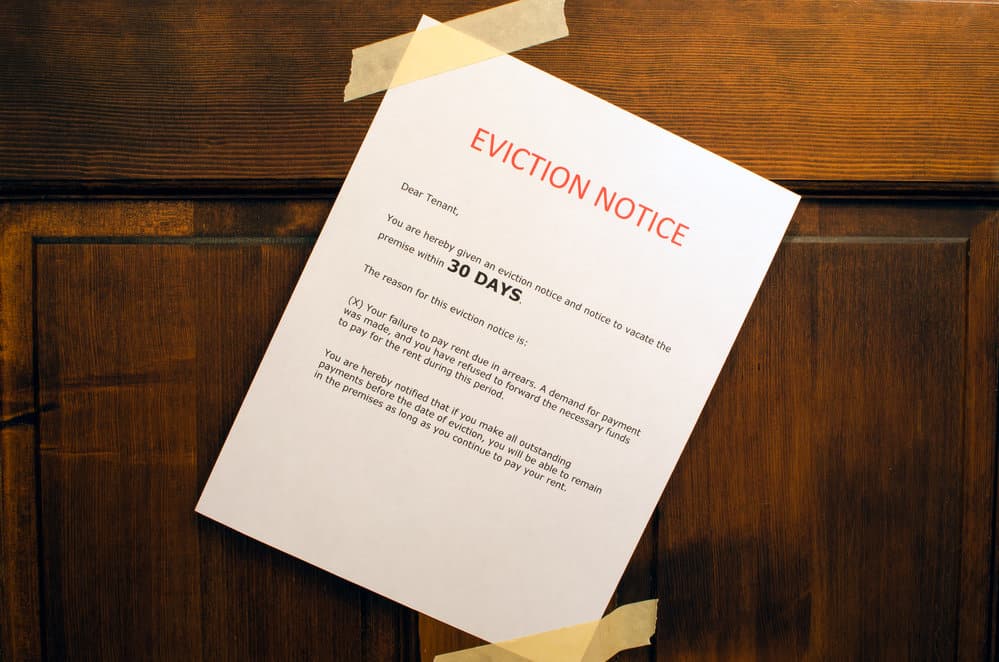Noise complaints are a common issue for tenants and property managers alike. Excessive noise can lead to disturbances in residential communities, affecting residents’ overall quality of life. This article explores the number of noise complaints that can lead to eviction and the various factors determining such an outcome.
Every landlord has their own set of rules and regulations to follow when it comes to handling noise complaints. Some property managers may be more lenient, while others could have a strict policy. Generally, local laws and housing regulations play a crucial role in determining the course of action taken in response to noise complaints.
It is essential for tenants to be aware of their responsibilities and rights when it comes to noise complaints. Understanding the potential consequences can help promote a healthier and more respectful residential environment for all parties involved.
Understanding Noise Complaints
Noise complaints play a significant role in maintaining the quality of life for community residents. Understanding the difference between reasonable and unreasonable noise and the local laws and regulations governing noise limits is essential.
Reasonable Noise vs. Unreasonable Noise
Reasonable noise is the everyday sounds that one can expect while living in a community, such as people talking, moderate music volume, or appliances in normal use. However, when noise becomes excessive, it may be considered unreasonable. Unreasonable noise can disrupt daily routines, negatively impact sleep, and create an uncomfortable atmosphere for those affected. Unreasonable noise might include extremely loud music, continuous barking dogs, or excessive construction noise.
Noise Limits and Local Laws
Many cities and municipalities have specific noise limits and regulations to keep the peace among residents. These local laws outline acceptable noise levels and may vary depending on the time of day, type of noise, and location. For instance, residential areas usually have stricter noise regulations than industrial zones.
Familiarizing oneself with local noise laws is essential, as excessive noise can lead to complaints and potential legal consequences. Some regulations might include:
- Strict noise limits during designated quiet hours
- Permissible noise levels based on decibels
- Special permits for amplification or loudspeakers during events
- Rules regarding barking dogs or other animal noises
Noise complaints can be filed with local law enforcement or the appropriate agency in your area. A neighbor or tenant consistently violating noise regulations may eventually lead to eviction or other penalties. Understanding your rights and responsibilities is crucial to maintaining a peaceful living environment.
Lease Agreements and Noise Clauses
Lease agreements often include specific rules and clauses to maintain a peaceful living environment for all tenants. One such example is the noise clause, which addresses the issue of excessive noise in residential properties.
Noise clauses are designed to curtail disturbances that could negatively impact the comfort and well-being of other residents. Adherence to these rules is critical to maintaining a harmonious and cooperative living arrangement between neighbors.
Violations and Warnings
When tenants breach the noise clause in their lease agreement, they may be subject to various consequences. These can range from warnings to fines and, in severe cases, eviction. The specific course of action depends on several factors, including the lease’s provisions and the violation’s severity.
In many cases, landlords issue initial warnings when tenants violate noise clauses. These can be verbal or written notifications, alerting the tenant to the disturbance they have caused and reminding them of their responsibilities under the lease agreement. A typical progression of actions following a violation may look like this:
- First Violation: Verbal or written warning.
- Second Violation: Additional written warning and possible fine.
- Third Violation: Final written warning, a higher fine, and possible grounds for eviction proceedings.
Tenants need to understand their lease agreements and be aware of the possible consequences of violating the noise clause. To avoid any misunderstandings or conflicts, communicating with neighbors and landlords proactively can help ensure compliance with the lease terms and create a more pleasant living environment for all parties involved.
Landlords and Tenant’s Rights
When it comes to noise complaints and eviction, understanding the rights of both landlords and tenants is crucial. This section will cover key aspects of these rights, including quiet enjoyment, appropriate measures, and investigations.
Quiet Enjoyment
Tenants have a legal right to quiet enjoyment in their rental property. This means they are entitled to live in a peaceful environment without excessive noise or disturbances. Landlord-tenant laws generally protect this right, ensuring tenants enjoy their living space without constant disruption.
Landlords are also responsible for ensuring that other occupants in their property do not create excessive noise or disturbances. This may involve addressing tenant noise complaints and acting appropriately to maintain a peaceful environment.
Appropriate Measures
When noise complaints arise, landlords must take appropriate measures to address the issue. These may include:
- Speaking with the tenant responsible for the noise and requesting that they reduce the disturbance
- Issuing written warnings to the tenant causing the issue
- Implementing noise restrictions or quiet hours in the property or building
Landlords need to act on noise complaints promptly, fairly, and consistently. This not only helps maintain a comfortable living environment but also protects the rights of all tenants.
Investigations
In cases where noise complaints persist, landlords may need to conduct investigations. This can involve speaking with multiple tenants, gathering evidence of the excessive noise, or consulting with professionals, such as sound engineers, to assess the situation.
Landlords must remain objective during these investigations, ensuring they uphold the rights of all parties involved. Should evidence support the validity of the noise complaints, further measures may be required to resolve the matter, including issuing penalties, mediation, or pursuing legal action, depending on the severity of the situation.

The Eviction Process
Understanding the eviction process is crucial for both landlords and tenants. Evictions typically involve several steps, including warnings and quit notices, court hearings, and lawsuits.
Warnings and Quit Notices
Before initiating the eviction process, landlords usually warn tenants about noise complaints or other lease violations. These warnings can be verbal or written and may give the tenant a specific time frame to rectify the problem. The landlord may issue a formal quit notice if the tenant does not comply.
Quit notices inform the tenant that the landlord intends to evict them if the lease violation is unresolved. The notices typically state the reason for the eviction, and they can vary in length, depending on the jurisdiction and nature of the violation. Some common types of quit notices include:
- Three-Day Notice to Pay Rent or Quit
- Three-Day Notice to Perform Covenants or Quit
- Three-Day Notice to Quit for Nuisance
- Thirty-Day or Sixty-Day Notice to Quit
Court Hearings and Lawsuits
If the tenant does not comply with the quit notice, the landlord can proceed with eviction by filing an unlawful detainer lawsuit. This initiates legal proceedings for eviction, requiring the tenant to respond within a specific time frame, often about five days.
After the tenant responds, a court hearing will be scheduled. During the hearing, both the landlord and tenant will have the opportunity to present their case. A judge will decide whether the eviction is lawful based on the evidence presented.
Both parties need to understand their rights and the legal process. Tenants facing eviction should seek legal advice to know their rights and how to proceed. Landlords should also know their jurisdiction’s eviction laws to avoid potential lawsuits and delays in the eviction process.
Dealing with Noise Complaints
Dealing with noise complaints can be a challenging experience for both landlords and tenants. It’s essential to be aware of the different aspects of addressing noise complaints to ensure a peaceful living environment for all residents.

Police Involvement
Sometimes, the local police may become involved in addressing noise complaints. This typically occurs when the noise violates the town or city’s established quiet hours. If the police received multiple reports of violations, they might visit the property to issue a warning or citation to the tenant responsible for the disturbance.
Repeated violations can result in fines and, in extreme cases, potential eviction. Tenants need to be aware of the quiet hours in their area and respect their neighbors’ peace by adhering to those guidelines.
Local Authorities
Aside from police involvement, local authorities may also play a role in handling noise complaints. Usually, this transpires when tenants cannot resolve a noise issue among themselves or when multiple complaints have been filed with the property manager or landlord.
Local authorities may issue warnings, require mediation between the affected parties, or impose fines for excessive noise. Tenants must cooperate with these authorities to avoid escalating the situation further and maintain a harmonious living environment.
Fines
Fines are a common consequence of excessive noise violations. Local authorities or police may issue these fines as a deterrent to prevent future disturbances. The fines can vary widely depending on local regulations and the severity of the noise violations. In some cases, tenants may be required to pay the fines directly. In others, property managers or landlords may be held responsible and, in turn, seek reimbursement from the violating tenant.
Tenants should be mindful of their surrounding neighbors and adhere to any designated quiet hours to avoid the imposition of fines, possible eviction, and strained relationships within their community.
Preventing Noise Issues in Rental Properties
Addressing noise issues is crucial to maintain a harmonious living environment in rental properties. Both renters and property owners can take preventive measures to minimize disturbances and disruptions.
Soundproofing
One effective measure in reducing complaints is investing in soundproofing solutions. Property owners can take the following actions to improve sound insulation:
- Install double-glazed windows to block external noise.
- Add insulation materials in walls and ceilings to limit sound transmission between rooms and floors.
- Place weatherstripping around doors to reduce noise leakage.
- Use carpets, rugs, or floor padding to absorb sound and minimize noise from footsteps.
Renters can also do their part by:
- Placing furniture strategically to create natural sound barriers.
- Using curtains, wall hangings, or bookshelves to absorb and dampen noise.
- Adding rubber mats or pads under appliances to reduce vibrations.
Noise Restrictions
Establishing clear noise restrictions is essential in managing expectations and preventing disputes. Property owners can include provisions in rental agreements stating acceptable noise levels and quiet hours within the property.
To facilitate adherence to these restrictions, the following steps could be taken:
- Communicate noise restrictions and quiet hours to all renters upon move-in.
- Post signs reminding residents of the noise policy in common areas.
- Regularly review the noise policy and update it as necessary.
These preventive measures allow property owners to create a conducive living environment for all renters while reducing the risk of receiving multiple noise complaints.
Addressing Noisy Neighbors
Dealing with noisy tenants or neighbors can be a frustrating experience. However, some steps can be taken to address and potentially resolve the issue before it leads to eviction.
Guidelines for Handling Noisy Tenants
When dealing with noisy tenants, following specific guidelines to resolve the situation effectively and professionally is essential. Here are some essential steps to follow:
- Establish a clear policy: Ensure every tenant knows the noise policies by including them in the lease agreement. This way, tenants know what is expected of them from the start.
- Document complaints: Keep a record of all noise complaints received, documenting the date, time, nature of the complaint, and the name and contact information of the complainant.
- Investigate: Upon receiving a noise complaint, assess the situation by speaking with other neighbors, visiting the property during the reported noisy hours, or even installing noise monitoring devices if necessary.
- Communicate: If the noise issue is verified, contact the noisy tenant to discuss the problem. Inform them of the complaints received and remind them of the lease agreement’s noise policies.
- Issue warnings: If the noisy tenant continues to create disturbances, issue written warnings. Be sure to document these warnings as well.
- Consider mediation: If the problem persists, consider mediation or alternative dispute resolution methods to resolve the issue with the tenant.
- Eviction: If all other attempts fail to resolve the noise issue, consider starting the eviction process as a last resort. Consult with a legal expert to ensure compliance with local laws.
Property managers and landlords can effectively approach and address issues with noisy tenants by following these guidelines. The goal is to maintain a peaceful living environment for all tenants while ensuring that everyone respects and adheres to the established noise policies.
Additional Information
This section covers further aspects of noise complaints, eviction, and their effect on subleasing and property ownership.
Subleasing
In cases where a tenant subleases their rental unit, the original tenant and the subtenant have specific responsibilities regarding noise disturbances in the residential area. The original tenant should ensure that their subtenant is well-informed about the apartment building’s noise regulations to avoid any issues that may lead to eviction.
Property owners can hold the original tenant responsible for any noise complaints, even if it is the subtenant causing them. If a rental unit consistently receives noise complaints, it puts both the subtenant and the original tenant at risk of eviction. Therefore, both parties must cooperate and respect the noise ordinances to maintain a peaceful living environment.
Property Ownership
Noise complaints can also affect property owners in a residential area, as they must ensure that their tenants are not consistently creating disturbances. If multiple noise complaints are received, and the property owner fails to address the situation, they may face penalties or fines from regulatory authorities.
A property owner can risk their reputation and occupancy rate in the apartment building if they do not adequately address noise disturbances. Resolving the issue promptly and somewhat is essential to maintaining a harmonious living environment for all residents.
It is in the best interest of tenants and property owners to abide by noise regulations and address any noise complaints swiftly to avoid any potential consequences, including eviction.

Frequently Asked Questions
How many noise complaints does it take to lead to eviction?
No specific number of complaints automatically leads to eviction, as this varies depending on local laws, lease agreements, and the discretion of landlords. However, receiving multiple noise complaints can put a tenant at risk of eviction.
What are the expected consequences of noise complaints?
- Warning from the landlord or property manager
- Fines or penalties
- Mediation between tenants
- Possible eviction if the situation doesn’t improve
How can a tenant avoid noise complaints?
Tenants can take several measures to reduce the risk of receiving noise complaints, such as:
- Being aware of quiet hours in the building or community
- Using headphones when listening to loud music or watching TV
- Investing in noise-dampening materials like rugs and curtains
- Communicating with neighbors about any concerns
What can a landlord do if they receive noise complaints about a tenant?
Landlords can take the following steps:
- Issue a verbal or written warning
- Set up mediation between neighbors, if applicable
- Impose fines or penalties, as outlined in the lease agreement
- Consider eviction if the problem persists and interferes with other tenants’ rights to peaceful enjoyment of their homes



